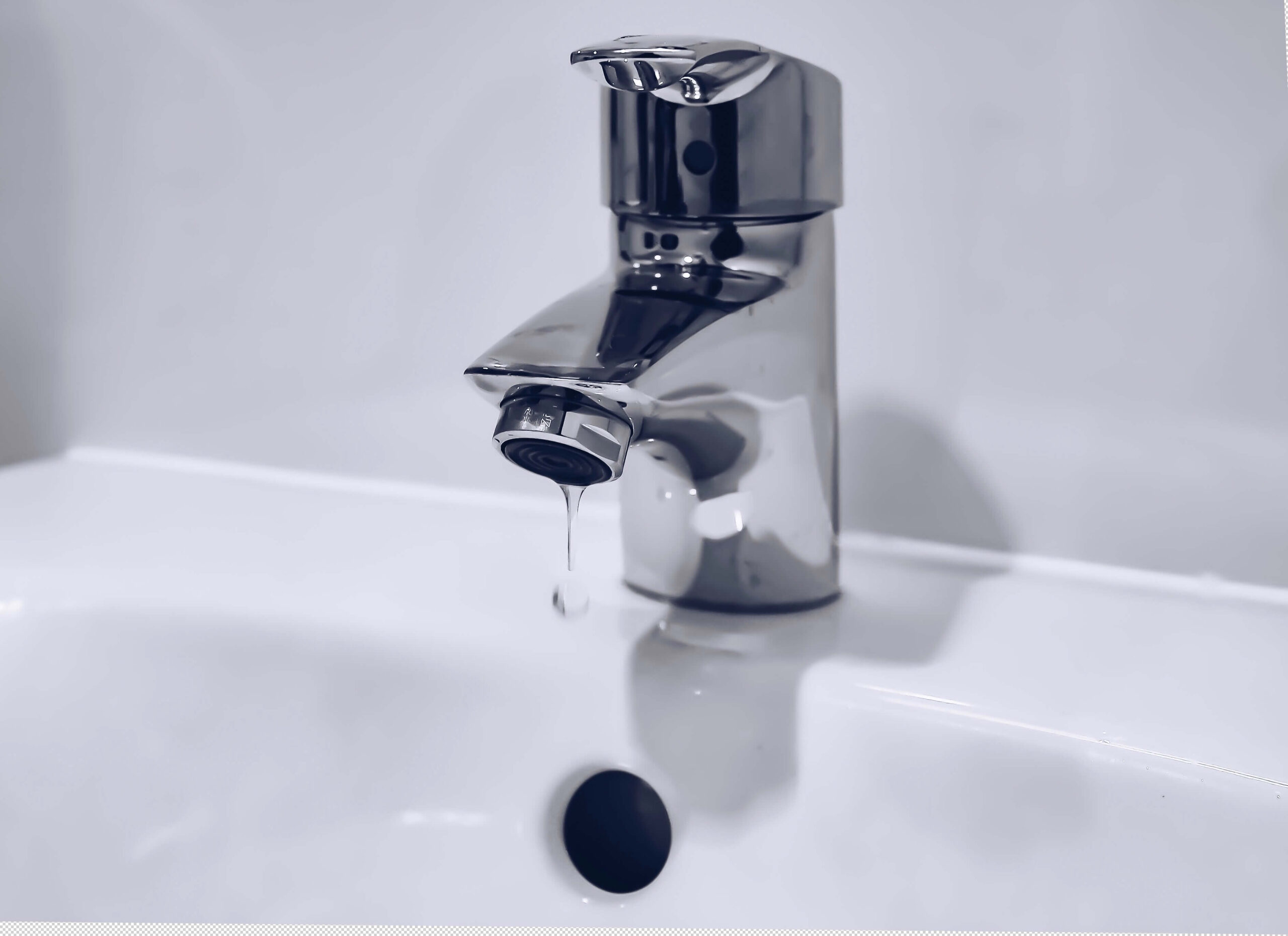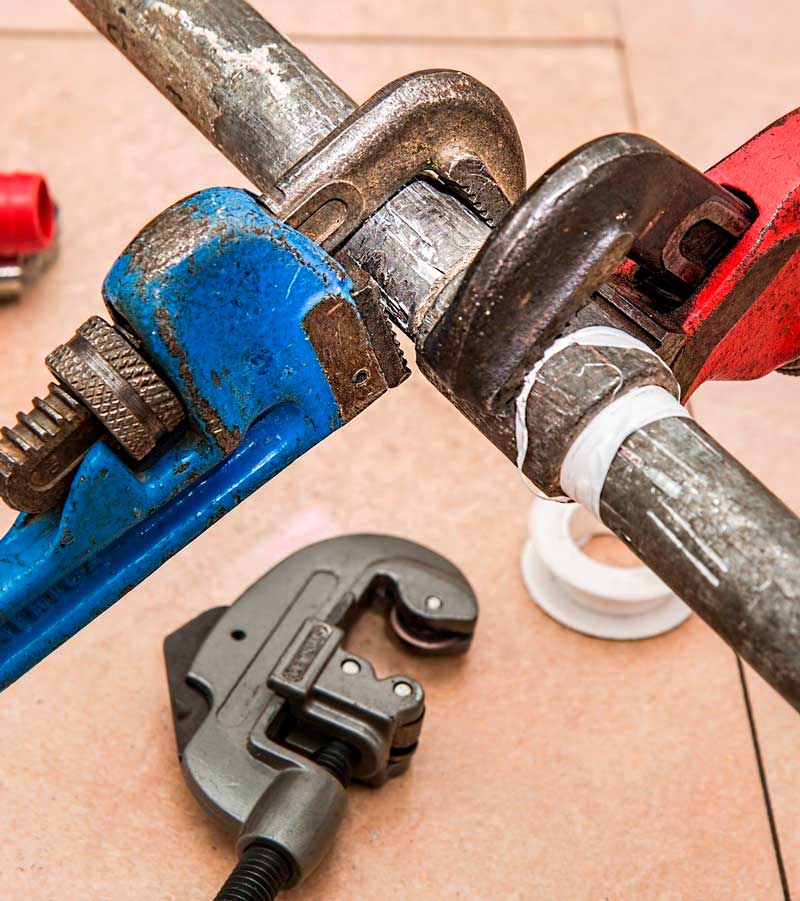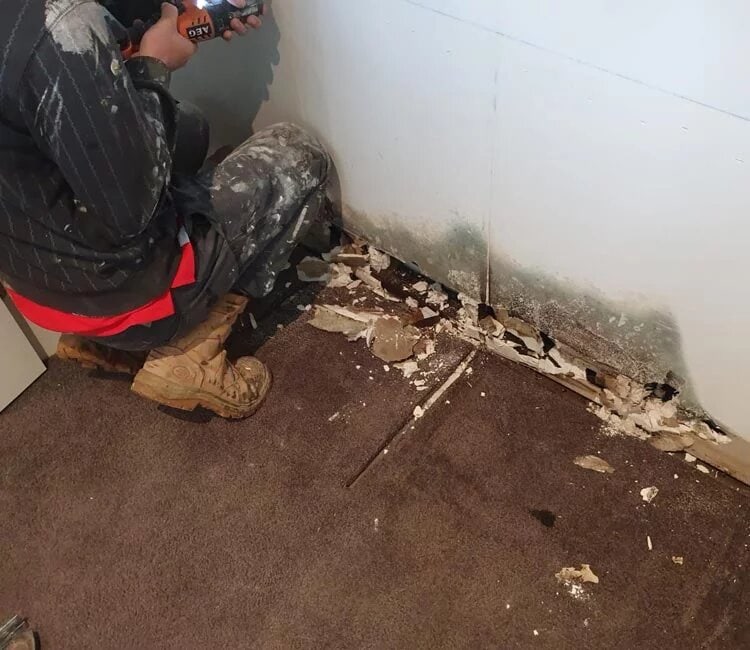Water is essential in our homes, but only when it is contained in a pipe, sink, tub, or equipment like a dishwasher. If water seeps into the incorrect areas of a house, it can ruin the foundation, the walls, the floors, and the furniture. Every house, even brand new ones, will eventually spring a plumbing leak. It's crucial to detect and fix leaks as soon as possible, especially because not all of them are evident. In order to prevent a major plumbing disaster, every homeowner should know where to look for a leak.
Whether you are a tenant or a homeowner, you have certainly heard the steady trickle of water and worried about what it could mean.
If you're like many people, you've probably woken up to a flooded kitchen caused by a leaking dishwasher or cleaning machine, or a puddle of water and a hole in the ceiling caused by a burst pipe. To be honest, none of these scenarios is out of the ordinary or unexpected. Leaky or broken pipes (also known as "escape of water") account for one-fourth of all claims made on structure and contents insurance policies.
We have a wide range of property leak detection Melbourne at Hitch Property Constructions.
Insurance companies and homeowners with water metres or plumbing emergencies face high costs in the event of water damage. The harm to your home or bank account from leaks is inevitable but can be kept to a minimum. A slow trickle that keeps you awake at night isn't the only sign of a leak. It's crucial to spot them before the trickle turns into a deluge.
Pipes Leak Detection Technology
Plumbing professionals utilise various tools and technologies to find water leakages buried under soil, inside walls, and below concrete slabs. Looking for leak detection on your property? Look no further! Hitch Property Constructions has you covered.
These are three commonly used leakage detection tools:
Acoustic Listening Equipment
This new technology amplifies the sound of water leaks occurring inside walls or beneath concrete slabs. Before beginning any digging or drilling, plumbing technicians can use these devices to get a close approximation of the location of a water leakage.
Video Inspection Equipment
Professional plumbers can now see what's going on inside pipes thanks to the use of miniature cameras. These machines can help retrieve items like lost car keys and wedding rings from drains and sewers. It is possible for plumbing technicians to correctly diagnose problems with the pipeline and locate the source of the leakage by measuring the amount of cable television that passed through the pipe prior to the discovery of the leak.
Soil Probes
The use of soil probe devices provides plumbers with a straightforward method for listening for the sound of pressurised water shooting into the soil around water pipe or sewage system lines. Because of this innovation, significantly less of your lawn will need to be dug up in order to locate and repair your leaking pipe.
Inexplicable hike in the water costs
When there is no obvious sign of water loss and you have not recently used an appliance that requires a significant amount of water, but your water bill continues to rise, you may have a leak in your home. This is a simple but effective way to determine whether or not there is a leak in your home.
The process followed to discover and repair the leakage.
When you call a plumber about a possible wall leak, they may ask why you suspect one. They'll decide if they need to go to the home to investigate. To find the leak, they may try:
They'll use a moisture metre to find the wall's dampest spots. Most water will be near the leak.
Infrared cameras may be used to find the cold, dripping area. The drip's source will be chillier than its surroundings. Infrared cameras detect heat differences to find leaks.
Cutting into a wall to find a leak is a last resort. Great plumbers can detect leaks without tearing up the house. If all other measures fail, they'll open the walls, find the leak, and fix it.
Minimise The Expense Of Water Costs
Undiscovered leaks could be responsible for losing hundreds of pounds annually. Water is a precious resource, so it's crucial to make sure none of it goes to waste. Hiring a professional to check your house or company for water leaks is a great way to save money in the long run while also guaranteeing that no water is wasted.
Guarantee Your Water Is Safe.
The water supply must be safe for consumption by all members of your household and all staff. The safety of the people in your community could be at risk if water is being contaminated because of leaks in the pipes that provide your water. If there is a leak in your home's sewer pipeline, the entire house may get contaminated. If you need some peace of mind, hiring an expert to look for leaks is a good idea.
Avoid Damage
The financial impact of leaks extends beyond the simple loss of water. Think of a leak in the earth that has gone unnoticed for a long time. In that instance, the increased moisture and mould growth might cause structural damage to the building's foundation. This is a very expensive problem with potentially disastrous outcomes. Disasters like the ones listed above may be avoided with the aid of water leak detection.
Ensure Your Water System Is Reputable
Finding water leaks requires a constant water flow. Many activities can't run without a steady supply of clean water. Corporations that need a constant supply of water should invest in water detection equipment.
If you want to avoid expensive repairs for your home or business, hiring a leak detection expert is a good idea. Leak Tracers Direct makes quick work of fixing water leaks in London. No one is better than our crew when it comes to locating water or gas leaks. Our top priority is the satisfaction of our clients, thus we regularly go above and beyond what is expected of us to ensure their complete satisfaction.
The inconvenience caused by a leak is well understood, which is why we make every effort to have it fixed as quickly as possible. You may get back to your regular routine while we handle the insurance claims. Visit our website to find out more about us and the leak detection experts we employ.
View The Water Meter
You should examine your water metre if you think you have a leak. The metre is typically situated in the backyard or along the side of the house in regions where cold temperatures are rare. The following are the procedures for keeping track of the metre:
In addition to turning off the water, unplug the washing machine and the dishwasher.
Take down the values from the water metre. Verify again in an hour. Leaks are indicated by fluctuating counts.
To locate an indoor or outdoor leak, you must first turn off the main water supply (exclusively for houses with exterior metre boxes). The home's plumbing system often begins in the basement or the utility room.
After looking at the water metre, wait an hour. There is probably a water leak inside if the numbers haven't changed. When the figures fluctuate, you know there's a leak somewhere in your home's underground water supply.
Common Locations for Water Leaks
If you suspect a leak but don't have a leak detector to pinpoint its location, you should check the following places in and around your home.
- For the boiler or water tank, examine the intake and discharge ports. Visible leaks are required. If there is no obvious water leak, check for hissing or markings on the floor behind the valve. If your primary heating boiler is leaking, you should probably hire a professional to investigate.
- Toilets tend to leak since they are so widely used. Rarely does this cause cause for alarm. Constant functioning entails hefty expenses. In comparison to hiring a plumber, replacing a washer is easy and inexpensive to do yourself.
- To stop a leaking toilet, throw 10 drops of food colouring into the tank. It's a sign of a leak if the water level in the bowl is the same as the tank.
- Like restrooms, showers are used multiple times per day, if not every day. The result is eventual leaks and worn parts. If you suspect a problem, it is prudent to check the water pressure first, as this could suggest a leak or a clogged showerhead.
- Devices: Pipes and valves might become untightened from the constant movement of appliances. Attachments should be checked often for vulnerabilities.
How To Discover A Water Leak In The Yard Or Garden
Let's say you've looked everywhere in your home for symptoms of a water leak but have come up empty. In that situation, checking your water metre will tell you whether the problem is internal (perhaps buried underground) or external. First, make sure the stop tap is turned off and that no water is entering your home by running a faucet until no water comes out.
Hitch Property Constructions has a wide range of leak detection Melbourne services.
Continual movement of the dial indicates a leak in the supply pipe outside your house. If it isn't, the leak is probably in a pipe inside the building or one of the appliances.
Determine if the leak is inside or outside by looking for telltale indications. Look for muddy spots or places where the grass is growing more quickly than the rest of your yard if your metre is located there.
It's a shame you have to dig up your yard to assess the leak. Instead of immediately hiring a plumber, try to determine if the problem can be solved on your own. Look for other indicators if the leak is below the concrete.
How To Detect A Water Leak Under Concrete
Finding a water leak under concrete will be more challenging than locating a dripping faucet in your bathroom, but it is still possible to do. Even if there are no visible symptoms of a leak in the ceiling or the presence of a musty odour, damp spots on the floor may indicate a water problem. These two symptoms may both point to the presence of a leak under the concrete.
Conclusion
Plumbing leaks are inevitable, even in recently built homes. Leaky or damaged pipes account for 25% of structure and contents insurance claims. Expert plumbers have some devices for finding water leaks in the ground, inside buildings, and under concrete floors. Even without visible water waste, your home may leak. Infrared cameras may help find the frosty, leaking place.
Having a professional check for water leaks can save money. Hiring a leak detection service might save you money on home or business upkeep. Leak Tracers Direct can swiftly locate and rectify water leaks in London. Our crew can quickly discover gas and water leaks. Check these areas if you suspect a leak but can't find it.
Visible leaks are required. Listen for a hissing sound or look for water damage under the valve when there's no running water. Let a faucet run till it stops. Check for puddles or faster-growing grass.
Content Summary
- Every house, even brand new ones, will eventually spring a plumbing leak.
- Detecting and fixing leaks as soon as possible is crucial, especially because not all of them are evident.
- To prevent a major plumbing disaster, every homeowner should know where to look for a leak.
- The harm to your home or bank account from leaks is inevitable but can be kept to a minimum.
- A slow trickle that keeps you awake at night isn't the only sign of a leak.
- These are three commonly used leakage detection tools: This new technology amplifies the sound of water leaks occurring inside walls or beneath concrete slabs.
- Using soil probe devices provides plumbers with a straightforward method for listening for the sound of pressurised water shooting into the soil around water pipes or sewage system lines.
- When there is no obvious sign of water loss, and you have not recently used an appliance that requires a significant amount of water, but your water bill continues to rise, you may leak into your home.
- This is a simple but effective way to determine whether or not there is a leak in your home.
- The process followed to discover and repair the leakage.
- Cutting into a wall to find a leak is the last resort.
- Great plumbers can detect leaks without tearing up the house.
- Hiring a professional to check your house or company for water leaks is a great way to save money in the long run while also guaranteeing that no water is wasted.
- Hiring an expert to look for leaks is a good idea if you need peace of mind.
- Finding water leaks requires a constant water flow.
- Hiring a leak detection expert is a good idea if you want to avoid expensive repairs for your home or business.
- Leak Tracers Direct does quick work of fixing water leaks in London.
- You should examine your water metre if you think you're leaking.
- For the boiler or water tank, examine the intake and discharge ports.
- If there is no obvious water leak, check for hissing or markings on the floor behind the valve.
- If your primary heating boiler leaks, you should hire a professional to investigate.
- It's a sign of a leak if the water level in the bowl is the same as in the tank.
- If you suspect a problem, checking the water pressure first is prudent, as this could suggest a leak or a clogged showerhead.
- Let's say you've looked everywhere in your home for symptoms of a water leak but have come up empty.
- In that situation, checking your water metre will tell you whether the problem is internal (perhaps buried underground) or external.
- Determine if the leak is inside or outside by looking for telltale indications.
- It's a shame you must dig up your yard to assess the leak.
- These two symptoms may both point to the presence of a leak under the concrete.
FAQs About Water Leaks
Excess water and moisture gets absorbed in wood, drywall, insulation, and wallpaper which can lead to warping, stains, bubbling, and deterioration. Hidden water leaks can also cause mold to grow and spread in areas behind walls and ceilings where it is not easily detected.
But the question is, are there ever any leaks that fix themselves? The answer to that is yes and here's a few reasons why. From this point on, consider we are referring to plumbing leaks. The subject at hand is previous signs of leak damage that appear to no longer be leaking.
This means that as a property owner; you're responsible for the maintenance and repair of the pipes that supply water to your property. This includes all the pipes that run inside your home and outside too. For example, if there's a leak on the property boundary, then that is the homeowner's responsibility.
Corroded pipes may crack, develop holes, or loosen, and all of these things can trigger water leaks. All plumbing materials age over time, and when they do, they become susceptible to damage and leaks. Pipe connections loosen over time and washers lose their flexibility and thickness.
If your ceiling has been affected by a recent leak, you must replace the drywall as soon as possible to protect the structural integrity of your ceiling. However, many people, especially new homeowners, think that old discoloration on the ceiling isn't an issue anymore.



